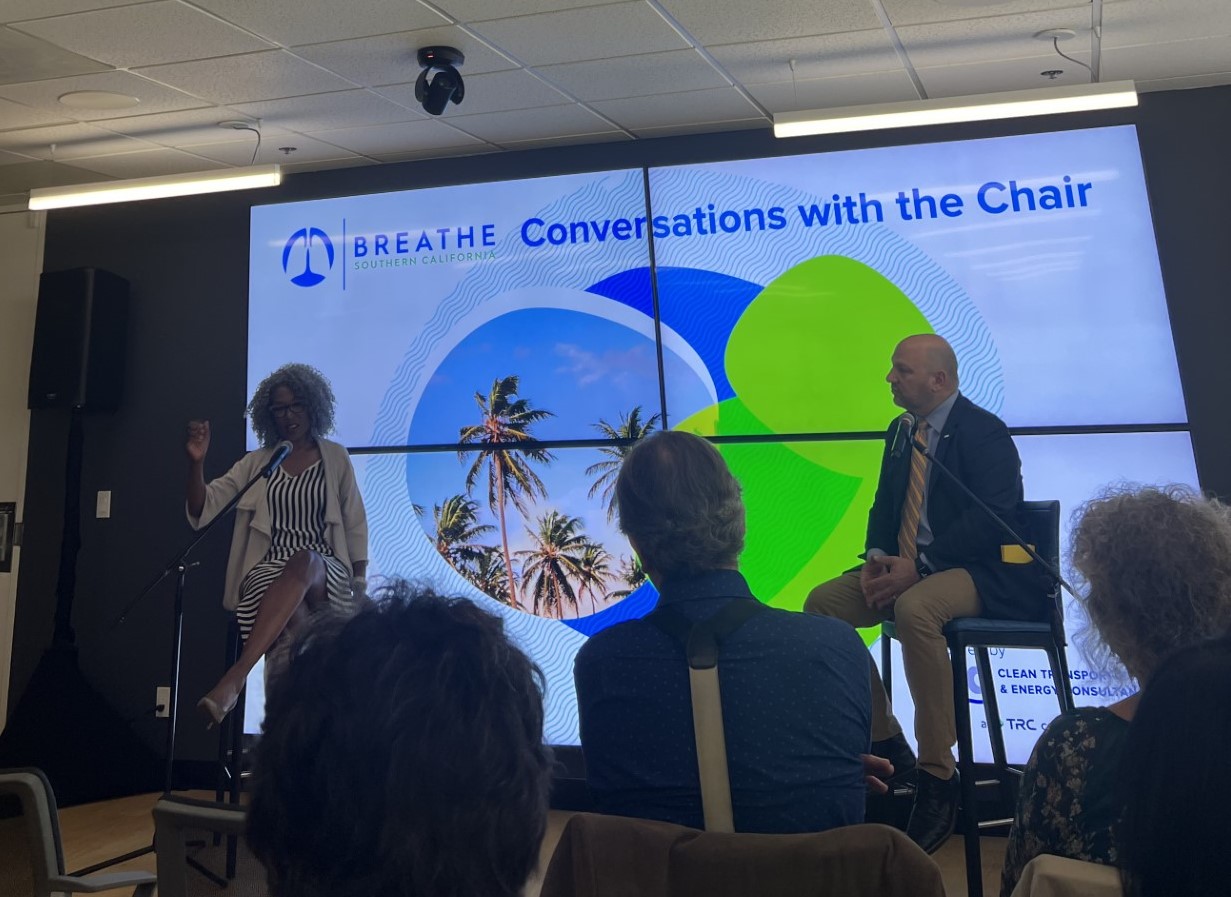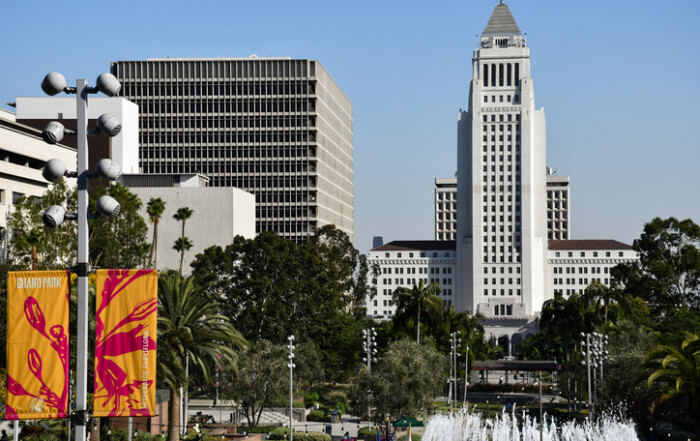On June 8, Marc Carrel, President and CEO of Breathe Southern California, interviewed Cynthia McClain-Hill, the President of the all-female Board of the Los Angeles Department of Water & Power (LADWP), the largest municipal utility in the country.
In addition to Chairing LADWP, McClain-Hill’s impressive public affairs resume has also included serving on the L.A. Police Commission, the Community Redevelopment Agency board, the California Coastal Commission, and the UCLA Luskin School of Public Affairs board of advisors.
Under McClain-Hill’s leadership, LADWP has implemented a number of customer programs that promote equity, assist the most vulnerable customers, and transition to clean energy. DWP customers recently received $85 million in utility assistance to help Angelenos pay off their past-due electricity and sanitation bills. DWP argues these programs also strengthen local water supplies and promote job growth.
The following captures some major points of their conversation.
“When I graduated law school, in addition to just being able to take care of my family, I wanted to contribute to my city and my community,” said McClain-Hill. “I would look at citizens that were so notable and they would make that kind of contribution, that when they passed [away] there were these sort of accolades as to how they impacted the community. I wanted to be one of those folks,” she added.
When asked about what drives her to do what she does today, she continued this service refrain, saying, “I worked really hard, and I would wonder, ‘Have I done enough?’ ‘Have I earned that bit?’ My goal has always been to make an impact. I am an African American of a certain age. I’m a first-generation college student, and when I think about my own path, so much of that was made possible by work that people did – showing up in people’s lives in a way that made them better. And to be part of that continuum is what’s always driven me,” McClain-Hill said.
McClain-Hill shared her agency’s as well as her own greatest accomplishment within the agency by shedding light on the murder of George Floyd in May 2020. “It was a sobering time. Seeing how that played across the country, and how it highlighted all of the pre-existing disparities in terms of dying early and how people were. There was a period for me of real – both survivor’s remorse or guilt as an African American – because very early on it was a lot of black people that were dying,” she reflected.
The chairperson added, “Since I’ve been board president, the Department of Water and Power established an Office of Diversity, Equity, and Inclusion (DEI) in response to the mayor’s racial equity goals. In addition to that, last year “the board adopted a policy directing the department to discontinue utility shutoffs for people in the city who are enrolled in our low income for lifeline programs.”
McClain-Hill also discussed an important lesson learned during the height of the pandemic, saying the LADWP found that when a policy was established not to shut off anyone’s power for lack of paying their bill, lower-income and often higher-risk customers were found to be paying off their bills at a rate that was at least as good and often higher than other customers. “So, the idea of moral hazard is that somehow if we don’t hold the threat of shutting people’s power and water off that they won’t pay their bills? We had a real word test of that, and that just is not the case,” she concluded.
She also spoke of DWP affirmatively working with community-based organizations to help direct ratepayers to resources outside of the agency, and to Federal resources that will help them pay the bills.
McClain-Hill added “We passed another program a few months ago, called ‘Project Powerhouse’, and it has shifted the way we global developers are building affordable, and supportive housing. The LADWP historically caused developers in the city to pay for the public right of way to infrastructure that they needed to support and develop. So, now the department pays for the cost of any public infrastructure upgrades that are necessarily associated with that development. So, that’s something I’m pretty pleased about.”
“We would not be the metropolitan area that we are. We would not be this mega city without the Department of Water and Power. When I think about the future sort of shifting to how we respond to climate change, LADWP is central to our response, and as we look forward and think about Los Angeles a hundred years from now, the things that we do today will lay the foundation for what L.A.’s going to be a hundred years from now,” McClain-Hill said.
She answered a question from Carrel about DWP’s current efforts to prepare for and mitigate the impact of climate change in California by saying that DWP is at the forefront of climate change response in Los Angeles. She stated that the impetus for decarbonizing the grid is climate change, but DWP’s job is to build a network that supports other strategies for reducing greenhouse gas emissions.
“The end goal is to build infrastructure in a smart, reliable, and resilient way that will allow other sectors to begin to decarbonize,” she said.
On the water side of the equation, McClain-Hill said that L.A. is finally coming to grips with the fact that there is no new water and that the city’s “Operation Next” program is focused on reuse and building a local water supply so that L.A. can be independent of imports.
Towards the end of the interview, Carrel asked, “The LADWP board is all female. How does serving on an all-female board differ from a mixed board?” to which McClain-Hill said, “A lot less ego, and a lot more drive around details. That’s been my experience on this board. Folks on this board not only talk about DWP and abstract policy, but they can tell you details like who is in charge of what, what you need to do to make things happen.”
The LADWP recently passed a $13 Billion budget, to which McClain-Hill admitted, “It is not a small assignment; it’s an awful lot of authority concentrated in the hands of a very small number of people.”
Breathe Southern California is a non-profit, non-partisan organization that promotes community health services through prevention, education, and early diagnosis of respiratory conditions. Their programs focus on air quality, health education, patient care, and preventative measures to help all Southern Californians Breathe Easier.
Photo by the author
Stay informed. Sign up for The Westside Voice Newsletter
By clicking submit, you agree to share your email address with Westside Voice. We do not sell or share your information with anyone.








